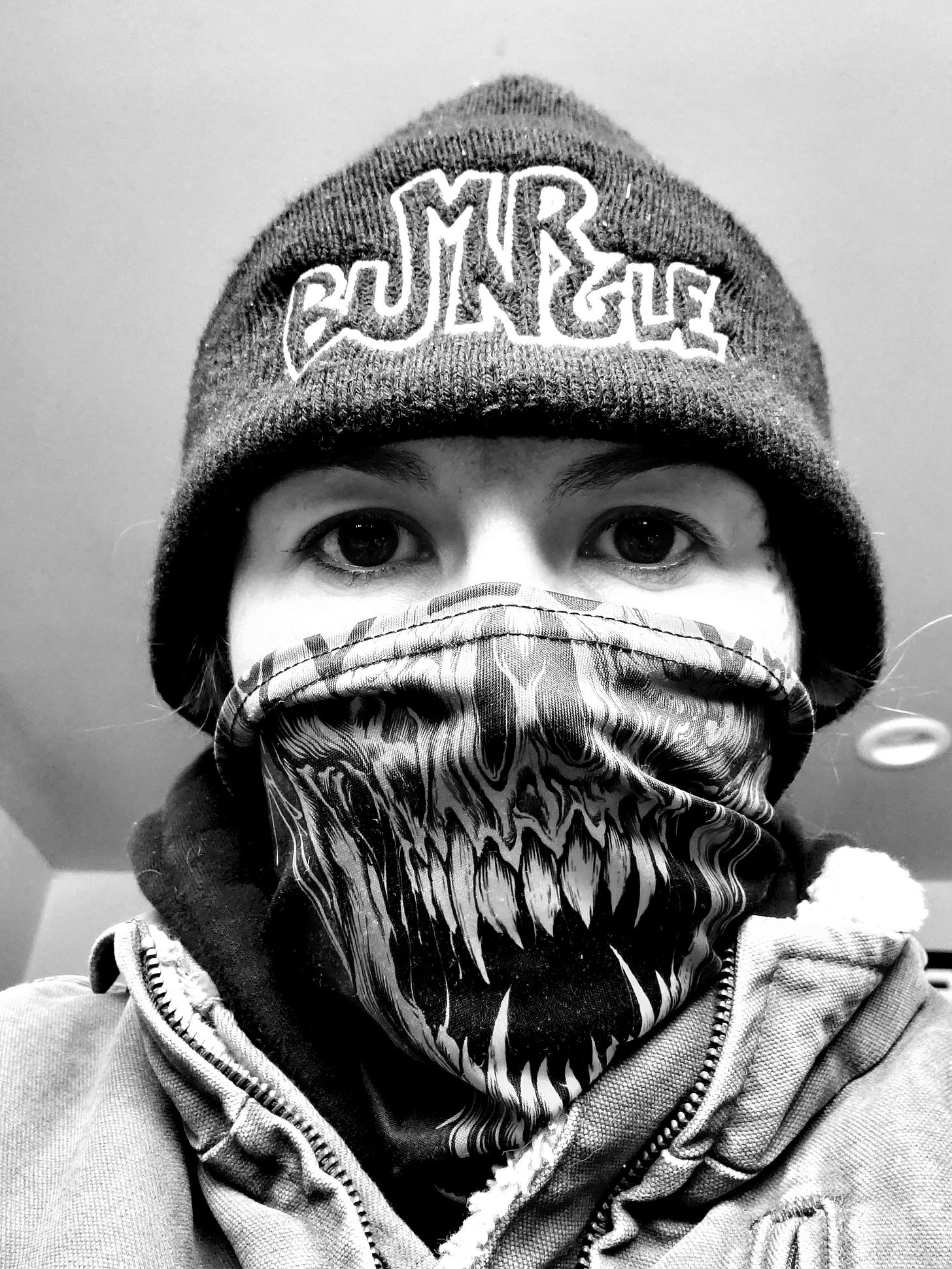The future hints at itself
“No one can set eyes on Black Shuck and live”.
There was a child, and the child’s parents gave them a puppy. The puppy was not playful, it was composed and self-assured, but it ate voraciously and saw everything. The puppy grew and grew until soon, it was the same height as the child, shoulder to shoulder. The puppy was extremely protective of the child, and they raised each other. The couple had a curious relationship. Somedays, you could walk into a room and the puppy would have the child’s throat in its jaws – its maw, clamped hard around its friend’s neck, drew no blood, but wrapped around the stalk of the child’s head like a boa constrictor suffocating a goat. Both participants, entirely dispassionate. Other days, you could find them curled up together, content and purring, no clear answer to where one began and the other ended.
As the child grew older, more often, the dog would be outside, in a steel garden, or some other place and time. Away from the child, but only ever a whistle away. The dog was an ancestor to the child, handed down by many more than just the parents, it was blood and neurons. The dog and the child loved one another, deeply, in the midst of all the bloodless maulings and appetite.
Scucca is a word from the ancestors, it’s not in use day-to-day anymore. When you say the word, it reverberates and conjures images that align closely with the definition. When you pronounce it the old way, ‘shuck-ah’, it sounds like limbs being pulled out of tar. Scucca sounds like laying down on your back on an abandoned beach on a frigid day, looking up at the bleak grey sky. Cold, and damp, feeling the bitter salt spray on your lips. The sun is pale, the rocks around you are high. The waves are loud and the smells and the motion makes you dizzy, which is why you’re laying down. Scucca sounds like Moria, Scucca sounds like the old, old earth.
Scucca is an old English word for a demon or devil, and the namesake of Black Shuck. A phantom hound who, depending on who is telling the story, was a portent of death and disaster, Shuck roamed the moors and roads of East Anglia and the West Country, terrifying travelers. With his horse-sized bulk, cyclopean red eye, and foaming jaws, he is a member of a great mythic pantheon extending across the rural British Isles, Europe, and some parts of North America.
Meeting Black Shuck is an extremely lonely experience of harrowing rarity. In 1577, Shuck exploded into a church in Suffolk and ran down the nave, killing two parishioners, and later, did the same thing down the road in Blythburgh, leaving scorchmarks on the door. Also known to roam the dark night time roads of rural England, doggo was known to have disappeared solo travelers and enticed motorists out of their vehicles to certain doom. However, in an unexpected contrast of colors, shapes and ideas, some stories told tales of Black Shuck as redeemer: protecting young women from predatory men, or leading the lost back to the road, back to the village. While the British countryside is not particularly threatening, it can offer many opportunities to die of hypothermia and human malice, and so, in these instances, Shuck saved lives.
Keep reading with a 7-day free trial
Subscribe to Microanimism to keep reading this post and get 7 days of free access to the full post archives.


